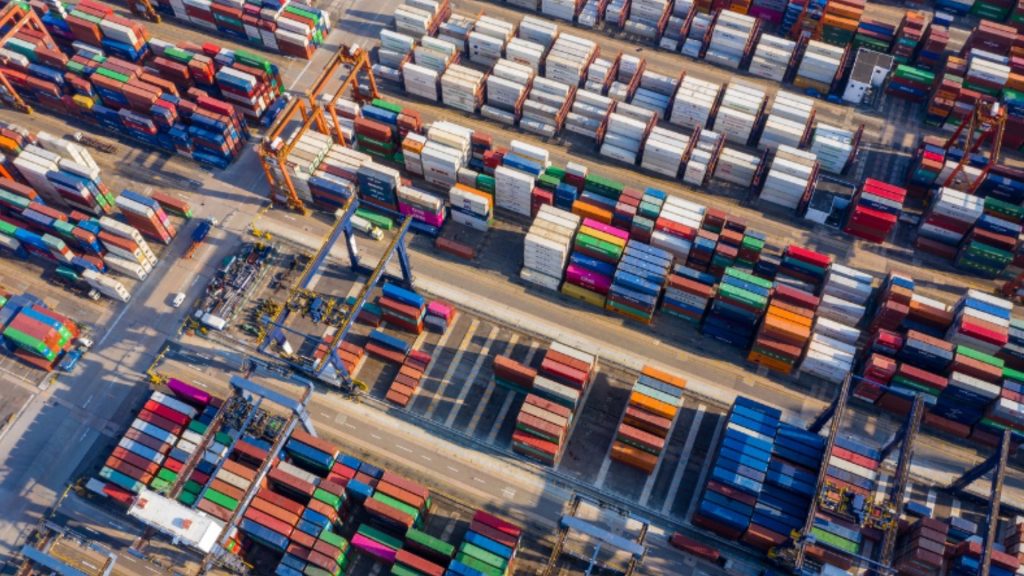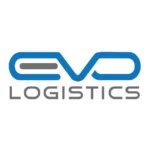B2B Logistics: How We Differ from UPS and FedEx
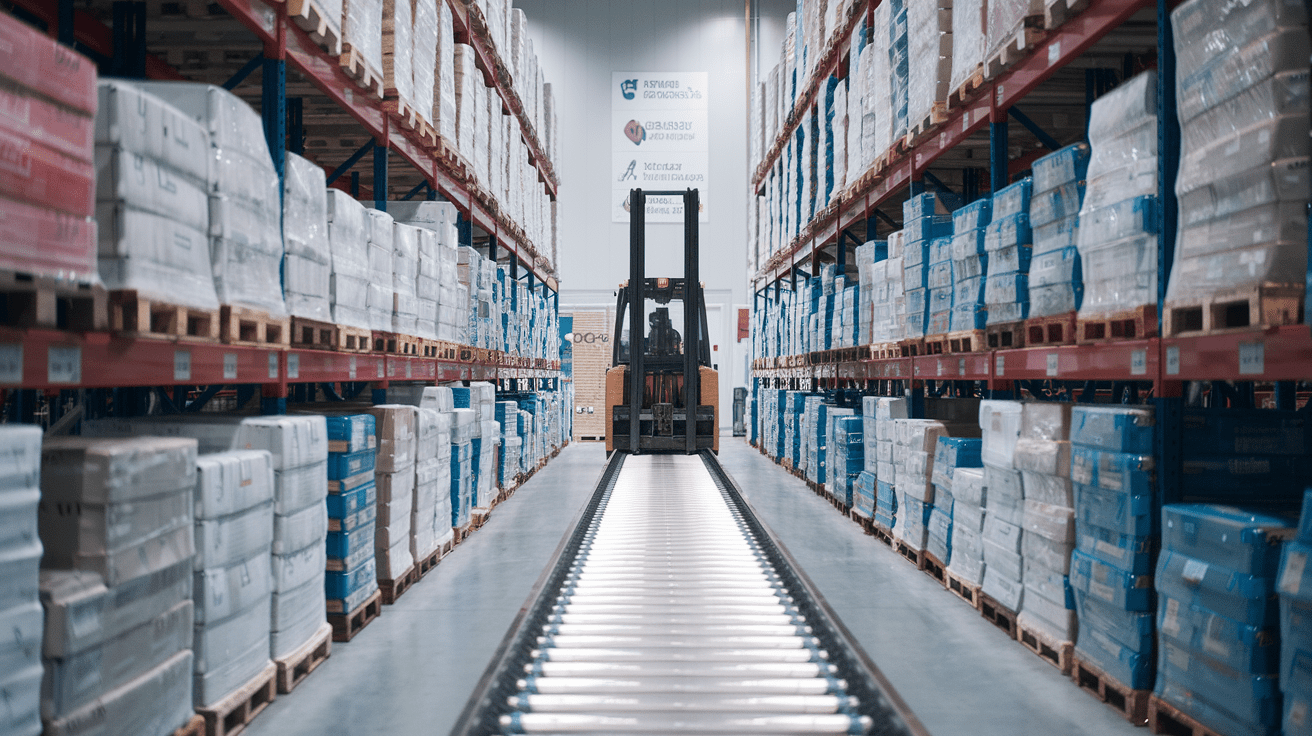
In today’s business world, logistics forms the foundation of global supply chains. Businesses depend on timely and efficient deliveries to keep their operations running smoothly. UPS and FedEx have become household names in this field, known for their standard shipping services. However, when it comes to specialized B2B logistics, things work quite differently.
Mainstream carriers like UPS and FedEx are built for high-volume, general deliveries. They serve a broad consumer base. But specialized B2B logistics companies focus on meeting the specific needs of businesses. These providers offer services tailored to complex, unique shipments that standard carriers might struggle with. This article explores the major differences between specialized B2B logistics solutions and the services of UPS and FedEx.
The Role of Specialized B2B Logistics in Business
In an interconnected world, businesses rely heavily on supply chains to move materials and products globally. B2B logistics providers cater directly to these business needs. Their focus is on managing shipments that often involve greater complexity than simple consumer deliveries.
What Are B2B Logistics?
Business-to-business (B2B) logistics involves the transportation of goods between companies rather than to individual customers. These can include raw materials for production, large machinery, or even small but essential parts. Unlike B2C (business-to-consumer) logistics, B2B logistics often demands more customization, advanced handling, and industry-specific solutions.
In the B2B world, logistics is not just about moving items. It can involve managing inventory, coordinating deliveries with production schedules, handling fragile equipment, and offering solutions like white-glove delivery or warehousing
Key Differences Between Specialized B2B Logistics and UPS/FedEx
When comparing specialized B2B logistics providers with UPS or FedEx, several key differences emerge.
1. Customized Services for Specific Industries
One of the primary differentiators of specialized business-to-business (B2B) logistics is the ability to customize services based on industry-specific requirements. For instance, industries such as healthcare, pharmaceuticals, and aerospace often need temperature-controlled shipping, white-glove handling, or the ability to transport hazardous materials. These are just a few examples of how specialized logistics providers tailor their services to meet the demands of these industries.
By contrast, UPS and FedEx focus primarily on standardized shipping solutions that serve a wide range of customers. While they do offer some specialized services, they often lack the industry-specific expertise and the flexibility needed for businesses operating in niche markets.
2. Flexibility in Shipment Size and Complexity
UPS and FedEx excel in handling small parcel deliveries and shipments that fall within standard size and weight categories. However, when it comes to oversized, heavy, or complex shipments, these carriers might not have the resources or expertise to handle the specific needs of a business effectively.
3. Personalized Account Management
In business-to-business (B2B) logistics, the relationship between the logistics provider and the business customer is critical. Specialized B2B logistics companies often assign dedicated account managers who work closely with businesses to understand their specific needs, offering tailored solutions and proactive problem-solving.
UPS and FedEx, while offering business accounts, often operate at a larger scale, making it difficult for them to provide the same level of personalized service. For smaller or niche industries, this lack of personal attention can lead to gaps in service, delays, or missed opportunities for optimization.
4. End-to-End Supply Chain Solutions
One of the biggest advantages of specialized B2B logistics is the ability to offer end-to-end supply chain solutions. This includes not only transportation but also services like warehousing, inventory management, customs brokerage, and last-mile delivery. This holistic approach ensures that businesses have a single point of contact for their entire logistics operation.
While UPS and FedEx offer warehousing and freight services, they often require businesses to use multiple providers for different aspects of their supply chain, leading to increased complexity and potential inefficiencies.
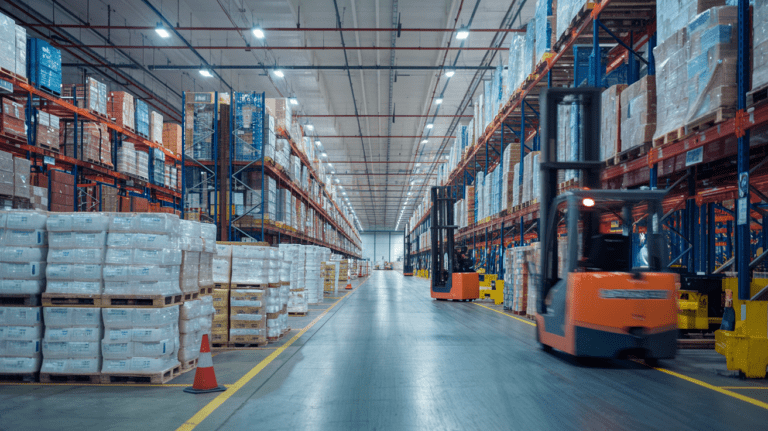
The Importance of Reliability and Speed in B2B Logistics
In the B2B world, time is often money. Delays in receiving raw materials or components can halt production, while missed delivery windows can disrupt entire operations. Specialized logistics providers understand the critical nature of these shipments and offer reliable, time-sensitive services that cater specifically to business needs.
While UPS and FedEx are known for their reliable parcel delivery services, they may not offer the same level of urgency or precision required for time-sensitive B2B shipments. Specialized logistics providers, on the other hand, often have the flexibility to offer expedited or same-day delivery options that are tailored to the specific needs of the business.
Technology Integration: A Key Advantage in B2B Logistics
Specialized B2B logistics providers often invest heavily in technology to provide businesses with real-time visibility into their shipments, inventory levels, and overall supply chain performance. Advanced tracking systems, cloud-based platforms, and integration with enterprise resource planning (ERP) systems are just a few of the technological innovations that can help businesses streamline their operations and make more informed decisions.
While UPS and FedEx offer tracking services, these are typically geared toward consumer shipments and lack the in-depth insights that many businesses require. For businesses that rely on complex supply chains, the ability to monitor shipments at every stage and receive real-time alerts can be a game-changer.
The Value of Specialized Expertise
Another crucial aspect of specialized B2B logistics is the expertise that these providers bring to the table. Many specialized logistics companies employ industry experts who understand the nuances of specific industries and can offer valuable insights and advice on everything from regulatory compliance to optimizing delivery routes.
UPS and FedEx, as general carriers, may not have the same level of industry-specific expertise. While they are highly skilled at moving packages, they may not be able to offer the same level of guidance or support for complex B2B logistics operations.
Why Businesses Are Choosing Specialized B2B Logistics Providers
As businesses become more complex and globalized, the need for specialized logistics solutions has grown exponentially. More companies are turning to specialized B2B logistics providers to meet their unique needs and ensure that their supply chains remain efficient, cost-effective, and reliable.
The decision to choose a specialized provider over a general carrier like UPS or FedEx often comes down to a few key factors:
- Flexibility: Specialized logistics providers can offer customized solutions that are tailored to the specific needs of the business.
- Industry Expertise: Specialized providers have deep knowledge of specific industries and can offer valuable insights and advice.
- End-to-End Solutions: By offering a full suite of logistics services, specialized providers can simplify the supply chain and reduce complexity.
- Personalized Service: Dedicated account managers and personalized support ensure that businesses receive the attention and service they need to succeed.
FAQs
What is the main difference between B2B logistics and general shipping?
B2B logistics is more complex, often requiring specialized handling, larger shipments, and tailored solutions. General shipping, like UPS or FedEx, focuses on smaller, standardized packages.
Can UPS or FedEx handle specialized B2B needs?
UPS and FedEx offer some specialized services. However, they mainly serve general shipping needs, while specialized B2B logistics providers are more equipped to handle complex shipments.
Which industries benefit the most from specialized B2B logistics?
Industries like healthcare, aerospace, manufacturing, and technology benefit the most from specialized services. These industries often require specific handling, compliance, and logistics solutions.
Why is personalized service important in B2B logistics?
Personalized service helps businesses receive tailored solutions. It also ensures quick problem-solving and proactive management of the supply chain.
Do specialized B2B logistics providers handle international shipping?
Yes, many specialized B2B providers offer international shipping services, including customs brokerage, freight forwarding, and compliance with regulations.
How do specialized logistics providers help with inventory management?
They offer warehousing and inventory management services, which allow businesses to store goods closer to customers. This can improve efficiency and reduce transportation costs.
Conclusion
While UPS and FedEx are excellent options for standard shipping needs, specialized B2B logistics providers offer a level of customization, flexibility, and expertise that general carriers simply can’t match. As businesses continue to evolve and require more sophisticated logistics solutions, the role of specialized B2B logistics providers will only continue to grow in importance.
Centrally Located Cold Storage Solutions
Interested in learning about how our cold storage facilities can help your business? Reach out to our team today!
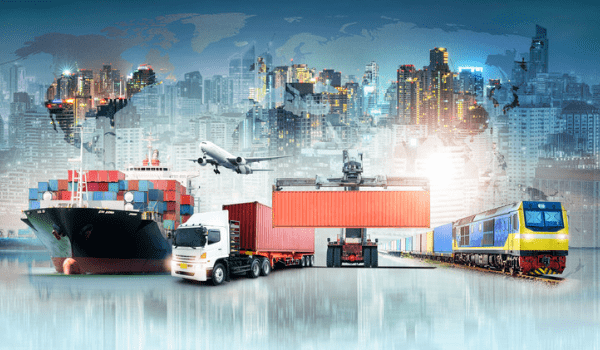
Get in touch with us today to learn more about how Evo Logistics’ climate controlled storage facilities can help your business thrive in the frozen storage logistics industry.
Our team understands the importance of being committed to ensuring the quality of our customer’s product is at its best throughout the shipping process. Our dedicated staff are trained to monitor and operate around the clock 24 hours a day, 365 days a year. With a focus on fast and timely delivery along with GPS tracking, we work to provide consistent satisfaction to our customers.


